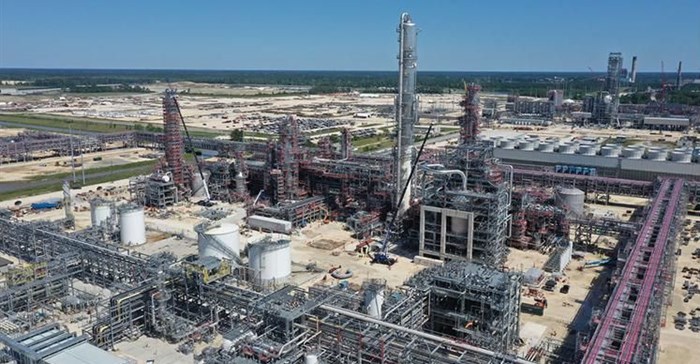
Subscribe & Follow
#AfricaMonth
In the news
Climate risk still plagues Sasol despite Lake Charles sale

However, hurricane damage to the plant on two occasions (andanother expected this week) over the past year has highlighted how climate risk has impacted the business’s already precarious balance sheet, and the question remains whether this most recent move to alleviate debt levels is enough to put the company back on track.
The transaction is essentially a forced sale at a low in the chemicals and oil cycle. “Sasol incurred debt to build the facility and, given the collapse in oil and chemical prices, needs to take aggressive action to remain solvent,” says Meryl Pick, head of equities research at Old Mutual Investment Group,
Top of the agenda is asset sales. However, this sale cannot objectively be viewed as selling the crown jewels.
The company falls within the highest categories of ESG risk, particularly in terms of its exposure to climate change-related risks, according to Old Mutual ESG index.
“Years of experience have given us a deep understanding that long-term system change requires alignment across the markets on core sustainability issues.
“There exists a degree of irony that Sasol has had to shut down its Lake Charles operations for the second time in the past three years due to interruptions caused by hurricanes. The impact of natural disasters on Sasol serves to highlight the role of ESG in the long-term sustainability of companies. Shareholder activists have long lobbied Sasol regarding its environmental, social and governance (ESG) disclosures, particularly its failure to provide stakeholders with adequate climate risk disclosure or to set greenhouse gas emission reduction targets," says Robert Lewenson, head of ESG engagement at Old Mutual Investment Group.
Material risk
Although Sasol acknowledges climate change as a material risk to its future revenues, its previous disclosure did not sufficiently set short-, medium- and long-term company-wide quantitative greenhouse gas targets (Scopes 1 and 2) aligned with the goals of the Paris Agreement, nor did it link these targets to executive remuneration on both a short- and long-term basis to be effective.
“The core issues of concern were discussed on a number of platforms and included pre-AGM engagement and the filing of resolutions, as well as engagement with the board, where Sasol explained its response to climate risk so far. The board wanted to better understand the concerns of stakeholders and so published the Climate Change Report in 2019, dealing with matters not contemplated before,” he says.
These engagements yielded a number of positive outcomes. “Overall, we believe Sasol has done a good job of engaging across a diverse range of stakeholders including staff, customers, communities, investors, suppliers, regulators," he says.
This process has helped Sasol commit to reducing its carbon intensity while creating governance and decision-making structures focused on climate management.
The nature and outcome from these interventions are now reported on annually in the group’s Climate Change Report. The 2020 edition shows that Sasol has engaged widely with stakeholders, with the report publishing stakeholder concerns.
As to Sasol’s future prospects linked to the Lake Charles project, Pick says it appears unlikely that it will deliver the attractive returns envisioned when the project was approved in 2014. “This is due to the huge cost overruns during the build phase, a deteriorating global growth outlook that’s weighing on chemicals prices, and rising environmental pressure on the plastics industry.”
Related
Corporate lobbying derailed South Africa’s climate goals, report finds 14 May 2025 Will Meta be forced to sell Instagram and WhatsApp in FTC trial? 16 Apr 2025 Elon Musk’s xAI acquires X 31 Mar 2025 Nordstrom shareholders to see $24.25/share in private buyout 30 Dec 2024 Saks Global acquires Neiman Marcus Group for $2.7bn 27 Dec 2024 US Senate approves bill to pressure TikTok sale 24 Apr 2024










